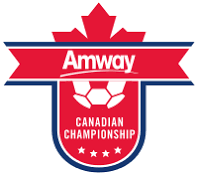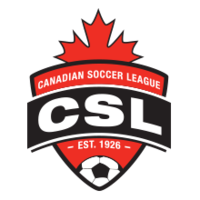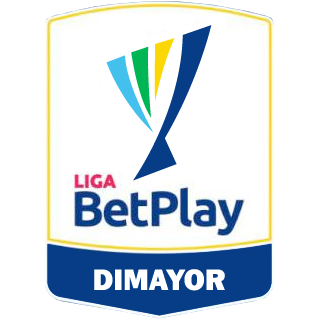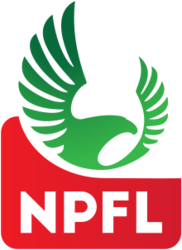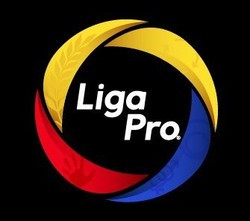🎉 Amazing Effort! Congratulations on Your Prize!
Exclusive for Quiz Winners!
How to Make Accurate Soccer Predictions: A 7-Step Guide for 2025 Season
How can I create reliable soccer predictions for the 2025/2026 season?
Imagine knowing a team's likely performance before they step on the pitch. With the right approach, you can develop prediction skills that outperform casual fans. This guide reveals the methods used by professional analysts to forecast soccer matches accurately throughout the 2025/2026 season.
Master the statistical fundamentals every predictor needs
Building a strong prediction foundation starts with understanding key soccer metrics. Focus on these essential statistics: 1) Expected Goals (xG) - Measures shot quality to assess if results reflect performance 2) Possession Value - Evaluates how teams use the ball effectively 3) Defensive Actions - Successful tackles, interceptions per game 4) Set Piece Efficiency - Corners and free kicks converted 5) Home/Away Splits - Many teams perform dramatically differently. Sites like Forebet provide these advanced metrics. For Canadian teams, the MLS stats portal offers league-specific data. Create a spreadsheet tracking these metrics for teams you follow regularly. Over time, you'll identify which statistics correlate strongest with results in different leagues - what works for predicting Bundesliga may differ from MLS patterns.
Develop your own prediction tracking system
Consistent tracking separates serious predictors from casual fans. Build a simple system to: 1) Record pre-match predictions 2) Note the reasoning behind each 3) Track actual results 4) Analyze discrepancies. Use a three-point scale for predictions (Confident, Lean, Toss-up) rather than binary win/lose forecasts. The Ekstraklasa prediction model shows how professionals structure their tracking. Include these elements in your system: 1) Predicted scoreline 2) Key factors considered 3) Confidence level 4) Odds value (if betting) 5) Post-match analysis. Review your tracker monthly to identify prediction strengths and weaknesses. Many fans find they're better at forecasting certain leagues or match types - focus your efforts accordingly.
Incorporate tactical analysis into your predictions
Moving beyond statistics, successful predictions require understanding how team tactics interact. Study: 1) Formation matchups - Does one team's shape neutralize another's strengths? 2) Pressing systems - High press vs low block dynamics 3) Transition play - How teams attack after gaining possession 4) Positional play - Creating overloads in key areas. Resources like the Eredivisie tactical breakdowns demonstrate this approach. Before predicting, ask: How will these teams' styles clash? What tactical adjustments might the managers make? Which individual duels could decide the match? This qualitative layer complements statistical models for more nuanced predictions. Follow pre-match press conferences for clues about tactical plans - managers often hint at lineup changes or strategic shifts.
Account for the human element in soccer predictions
Soccer isn't played by algorithms - human factors significantly impact results. Evaluate: 1) Squad morale - Winning/losing streaks affect confidence 2) Managerial stability - Teams often improve after coaching changes 3) Player relationships - Chemistry issues can undermine talent 4) External pressures - Derby matches, relegation fears change dynamics. The Argentina football insights highlight these intangible factors. Monitor team news for: 1) Player absences (injuries, suspensions) 2) Contract situations 3) Off-field distractions 4) Youth academy promotions. Some predictors create 'intangibles' ratings for each team, adjusting statistical projections based on these human elements. Remember that motivation fluctuates throughout a season - a midtable team in April may perform differently than in August.
Leverage multiple prediction sources for consensus
Smart predictors synthesize information from various quality sources rather than relying on one. Create your 'prediction network': 1) 2-3 statistical models (e.g., SoccerVital) 2) Expert analyst opinions 3) Local journalist insights 4) Fan community sentiment. Compare these sources looking for: 1) Consensus picks (multiple models agreeing) 2) Value disparities (where your analysis differs from consensus) 3) Market movements (odds changes indicating new information). The weekend predictions roundup demonstrates this multi-source approach. Maintain a source quality rating - note which predictors perform best for certain leagues or prediction types. Over time, you'll learn which combinations yield the most accurate forecasts for different match scenarios.
Adjust predictions for competition priorities
Teams approach different competitions with varying intensity - successful predictors account for these priorities. Consider: 1) League position targets (title chase, European spots, relegation) 2) Cup competition importance (varies by club philosophy) 3) Continental commitments (Champions League, Europa League) 4) Squad rotation patterns. The Bundesliga prediction hub shows how German teams prioritize competitions differently. Key indicators include: 1) Manager comments about rotation 2) Travel schedules 3) Youth player call-ups 4) Previous lineup patterns in similar situations. During congested fixture periods, prioritize predicting matches where teams field strongest XIs. Some predictors create 'priority matrices' rating each team's focus on different competitions throughout the season.
Continuously refine your prediction methodology
The best predictors evolve their approaches based on results analysis. Implement a review process: 1) Weekly - Examine incorrect predictions for common factors 2) Monthly - Identify prediction strengths/weaknesses by league/match type 3) Seasonally - Update models with new statistical insights. Use tools like the Soccer Prediction platform to benchmark your accuracy against professional models. Document lessons learned about: 1) Overvalued/undervalued statistics 2) Tactical trends affecting predictability 3) League-specific patterns 4) Successful prediction adjustments. Join prediction communities to exchange methods - the Canadian soccer forum offers local insights. Remember that soccer evolves - what worked last season may need adjustment for 2025/2026's tactical innovations and rule changes.
Comparison of Top Soccer Prediction Platforms for Canadian Fans (2025 Season)
| Platform | Coverage Strength | Prediction Method | Free Tier | Canadian Content | Mobile App |
|---|---|---|---|---|---|
| Forebet | European Leagues | Mathematical Models | Yes | Limited | Yes |
| PredictZ | Global Coverage | Stats + Expert Analysis | Yes | Some MLS Focus | Yes |
| SoccerVital | Top 20 Leagues | Statistical Models | Limited | MLS Section | Yes |
| Soccer Prediction | Major Leagues | AI + Human Analysis | Yes | No | No |
| soccer-canada.com | MLS/Canada Focus | Expert Analysis | Yes | Extensive | Yes |
| One Million Predictions | Niche Leagues | Crowdsourced Data | Yes | Minimal | No |
| *Table shows key features of prediction platforms available to Canadian users as of 2025 season. All platforms provide English language options. |
Live Soccer Streaming FAQ
What are the most accurate soccer prediction sites for the 2025 season?
How do mathematical soccer prediction models work?
Where can I find reliable MLS predictions for Canadian teams?
What's the difference between soccer predictions and betting tips?
How can I improve my own soccer prediction skills?
Are there any free soccer prediction platforms that are reliable?
What should I look for in a good soccer prediction app?
How do weekend soccer predictions differ from weekday predictions?
Popular search queries
More Resources
Where Can You Find the Best Soccer Predictions for 2025/2026 Season?
See our free soccer predictions for Canada for today and the weekend selected from experts. Soccer match previews include statistics, betting odds markets & the latest bookie offers. You will be surprised...
 Where Can You Find the Best Soccer Predictions for 2025/2026 Season?.
Where Can You Find the Best Soccer Predictions for 2025/2026 Season?.

